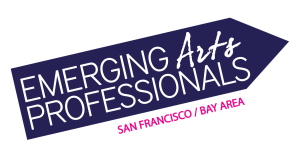To Face Ruin Is A Victory
In my last post, I suggested framing art as a human right, in the sense that community art is a practice that can sidestep or challenge the spreadsheet mentality that exists in the United States when it comes to arts and culture policy.
This is not to say that we can completely escape this mentality, as recent proposals to zero out arts grants by the City of Oakland show. Oakland is a vibrant arts city despite the lack of robust institutional support. With some notable exceptions, much of it is grassroots or on the down-low.
Although we need this kind of city and state support and should advocate for it, if arts looks for its value only through the affirmation (funding) of the state, we are in dangerous territory. This is because, as Arlene Goldbard rightly points out, our country’s priorities are largely in punishment and destruction. These are profitable industries, and support for arts suffers at all levels because of it.
From 2009 to 2010, I coordinated Oakland Word, a popular program of the Oakland Public Library funded by the California State Library. Oakland Word offered free creative writing workshops at four library branches to the general public in poetry, fiction, memoir, and more. Hundreds participated in classes, public readings, and many were published in an official anthology.
Oakland Word was about community capacity-building and expanding use of public libraries as a free resource. As the coordinator, my premise was simple and drew from Paolo Freire–to write the word was to write the world. This meant that developing the capacity to tell a story was directly related to the ability to shape one’s own world. Libraries are filled with thousands of worlds–why shouldn’t they help generate new ones?
The demographics of Oakland Word’s participants were mostly women and people of color, all people whose lives are often not reflected positively in mainstream discussions. To be able to tell a story and have it affirmed as legitimate was for many a very significant experience. As someone who had benefited from other community writing programs, it was a joy to run.
Despite its great success, the program was unable to continue after a year because the grant was not renewable. In any case, it was also uncertain how much money would be available because they were hacking out the budget up in Sacramento.
These are our priorities as a society. The economic system we live with shapes our political system, which shapes the funding system we petition, which influences the practices and possibilities of the organizations we work for. And of course, this impacts the people who rely on our programs.
I recently watched a short documentary about the Chinese dissident artist Ai Weiwei. Through his freethinking, socially engaged and very public art, he came to be regarded as dangerous by the authorities.
When the Chinese government bulldozed his art studio, he examined the ruins and declared that it was his greatest work of art. Is there something we can learn from this, the ability to face ruin and flip it, turn it into a victory?
I don’t have the answer, but perhaps we have a piece of it.
##
Kenji C. Liu is a writer, cultural worker, and 1.5 generation immigrant from New Jersey currently residing in Oakland. He has an MA in Anthropology and Social Transformation from the California Institute of Integral Studies and has worn many hats: Asian American Studies instructor, graphic designer, meditation teacher, deejay, and diversity consultant leading workshops nationally. Kenji’s poetry chapbook You Left Without Your Shoes (Finishing Line Press, 2009) was nominated for a 2009 California Book Award. His writing has been nominated for a Pushcart Prize and appears in or is forthcoming from Tea Party Magazine (not related to the conservative movement), Kartika Review, Lantern Review, Kweli Journal, and the anthology Flick of My Tongue (Kearny Street Workshop, 2009). He is program director at the Geneva Car Barn and Powerhouse which offers arts-based youth development and leadership training for San Francisco District 11 residents. Prior to this, Kenji coordinated the Oakland Word program at the Oakland Public Library, which offered free creative writing workshops to the general public.
Don’t miss Reframing the Arts : Advocating for the Public Culture at Oakland Museum of California (OMCA) on Saturday, April 16! Register here.



Leave a Reply
Want to join the discussion?Feel free to contribute!